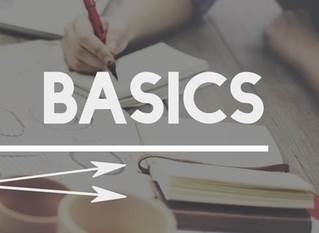Setting up
Emma Manning asks ‘How should I structure my business?’ from a franchisee’s perspective and looks at the various options available
When starting a new business one of the things to consider is how best it can be structured. Whilst some franchisors may define how their franchisees structure their businesses others allow for some flexibility. If the latter, there are several structures that can be used to establish the business operation. Detailed below are the options available to franchisees:
Sole trader
This is where you trade on your own account. You will need to prepare annual accounts which will then be included on your personal tax return to be submitted to HM Revenue & Customs each year. No accounts have to be submitted under normal circumstances, however, you will need to keep accurate records, in case your tax return is queried. You pay tax based on the profit generated in January and July each year. Commercially, you are the business – so any business debts are in your name, not in a separate legal entity. Partnership This is where you are in business with another person. Again you will need to prepare accounts each year to be included on the partnership tax return that will then flow through to your personal tax return. Tax is payable each January and July based on the profits that you receive. to HM Revenue & Customs each year. No accounts have to be submitted under normal circumstances, however, you will need to keep accurate records, in case your tax return is queried. You pay tax based on the profit generated in January and July each year. Commercially, you are the business – so any business debts are in your name, not in a separate legal entity.
Partnership
This is where you are in business with another person. Again you will need to prepare accounts each year to be included on the partnership tax return that will then flow through to your personal tax return. Tax is payable each January and July based on the profits that you receive. Partners in a partnership have joint and several liability for any business debt.
Limited Liability Partnership
The tax treatment is the same as for a partnership but there is also limited liability protection, which means that your personal assets are protected from business liabilities. Accounts also need to be filed with Companies House and typically the accounting costs will be higher than that of a partnership.
Limited Company
This is a separate legal entity that will have directors and shareholders. This is a tax-efficient way to structure the business if profits are over £25,000 as all income is taxed at 20 per cent on the basis that the company is small. Money is then extracted by way of a small salary and dividends. Ensure that there are good reasons to favour one form of structure over the others available. For example, there are various VAT exemptions that require a business to be structured either as a sole trader or partnership which would then mean that a limited company would not be advantageous to you. Another thing to consider is if the business will make a loss in the first year. If this is likely, and you have been employed on a PAYE basis in the last three years, you can then carry back losses (if you are a sole trader or in partnership) and receive a tax rebate to assist with cashflow. When looking at this you should discuss the options with a firm of franchise specialist accountants to find the best option for you.
Emma Manning CTA is a tax manager at Dennis & Turnbull, she has over 10 years’ experience dealing with tax matters both for individuals and companies. Her specialties are dealing with franchise networks, tuition/education and VAT.
You may also be interested in...



